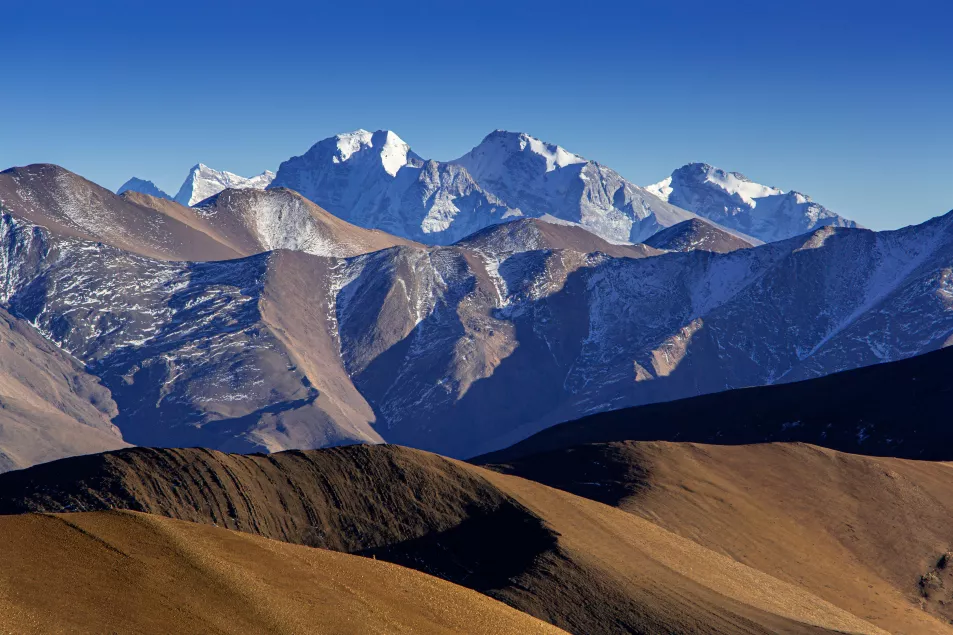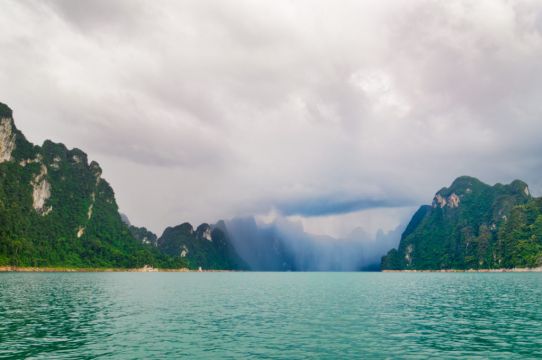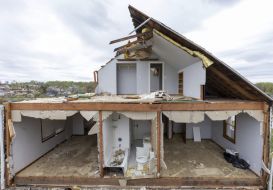A warming world is transforming some major snowfalls into extreme rain over mountains, worsening dangerous flooding like the type that devastated Pakistan last year as well as long-term water shortages, a study has found.
Using rain and snow measurements since 1950 and computer simulations for future climate, scientists calculated that for every degree Celsius the world warms, extreme rainfall at higher elevation increases by 15%, according to a study in the Nature journal.
Heavy rain in mountains causes a lot more problems than big snow, including flooding, landslides and erosion, scientists said, and the rain is not conveniently stored away like snowpack that can recharge reservoirs in spring and summer.

“It is not just a far-off problem that is projected to occur in the future, but the data is actually telling us that it’s already happening and we see that in the data over the past few decades,” said lead author Mohammed Ombadi, a Lawrence Berkeley National Laboratory hydrologist and climate scientist.
As the world has warmed to the brink of the internationally agreed 1.5C threshold to stem the worst effects of climate change, this study shows “every degree matters because it comes with an additional 15% increase” in extreme rain over mountains, Mr Ombadi said.
That per-degree rainfall boost in the mountains is more than twice the increase the rest of the world gets from warming air holding more water.
The study looked at only the heaviest rains each year over six decades in the Northern Hemisphere, finding that as altitude rose, so did the turbocharging of rain.
The biggest increase in rains were noticed at about 10,000ft. That includes much of the American West, where Mr Ombadi said “it’s very pronounced”, as well as parts of the Appalachian Mountains. Another big hot spot is the Himalayas, Tian Shan and Hindu Kush mountains, with the Alps also affected.
About one in four people on Earth lives in an area close enough to the mountains or hills that extreme rain and flooding would hit them, Mr Ombadi said.
It means more of the type of flooding off the mountains like the one that killed more than 1,700 people in Pakistan and put a third of the country under water, he added, but he noted that they have not studied Pakistan’s 2022 floods precisely so there may be some small differences.
The study makes sense and “the implications are serious”, said UCLA climate hydrologist Park Williams, who was not part of the research.
Scientists expect more precipitation with warmer temperatures, but heavy snow’s flooding impact is lessened because it takes time to melt and it is easier to monitor snowpack to see what is happening, he said.
“But as the proportion of mountain precipitation falling as snow decreases, flood hazards may enhance especially rapidly,” he added.
The flooding also can damage food production, Mr Ombadi said. He pointed to California Department of Agriculture estimates of 89 million dollars (£70 million) in crop and livestock losses from torrential rains in 1997.
But in the long term, another problem is water supply. When the western US gets heavy snowfall in the winter, that snow melts slowly in spring and summer, filling reservoirs where it can be useful when it is needed later.
“It’s going to decrease your snow, your water supply in the future,” said study co-author Charuleka Varadharajan, a lab climate scientist and hydrologist. “You’re going to have more short-term runoff leading to more floods and less snowpack that recharges the groundwater and the groundwater is ultimately what helps maintain stream flows.
“These mountainous systems are supplying most of the water in the West so any decreases in water supply would be pretty significant in terms of water management.”







